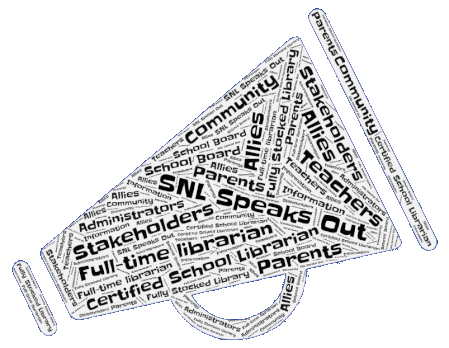|
by Lisa Sandoz Robinson
When former Texas State Rep. Matt Krause released his list of 850 titles* that he felt needed to be investigated, I read through page after page with growing alarm. An informational text on how to avoid bullies? A history book about the Trail of Tears? A book discussing a resistance movement among Afghani girls? But what really shocked me was seeing a book that I myself had purchased for my elementary school library just a few years ago: Separate Is Never Equal by Duncan Tonatiuh. When I selected this nonfiction title, I was impressed by its numerous awards. I was also hopeful that my mostly Hispanic students could relate to the story since the case involved Sylvia Mendez’s fight to desegregate her California school for children of Mexican heritage. When the book came in, my students were excited to hear about a girl with whom they had so much in common. It reminded me that diverse stories matter for our students who need to see themselves in the books that they read. It also reinforced my belief that one of the most important tasks that a librarian can do is share those individual stories of history that the classroom curriculum is sometimes too rushed to cover. When diverse books and books telling an uncomfortable or difficult story from history are removed from library and classroom shelves, these goals cannot be realized. I am the co-moderator of a new Facebook group called the Banned Book Club. We have read some great banned and challenged books in the last few months. In honor of National Children’s Picture Book Day on April 2nd, our April Zoom session will be the first time we focus on picture books. These wonderful books, which are usually geared towards younger readers but are really for anyone who loves a great story accompanied by a wealth of illustrations, have also been targeted by rightwing extremists in their zeal to “cleanse” our schools and public libraries. We cannot continue to let them get away with these book banning efforts which are happening across the country at all grade levels. Too much is at stake. As Kentucky nurse epidemiologist Beverly May wrote in an October 2021 op-ed for the Lexington Herald Leader, “the cost of acquiescence is steep: our kids have lost essential reading, and useful tools have been taken from teachers. Now emboldened, the parent/censors will return, and not just to Floyd County. They are part of a national trend of online organizing which seems to have the unspoken objective of removing literature written by or about black and brown people, as well as any other work that doesn’t affirm their narrow world view, from our schools.” We must speak up and speak out loudly at every opportunity. *https://static.texastribune.org/media/files/94fee7ff93eff9609f141433e41f8ae1/krausebooklist.pdf
0 Comments
|
AuthorThis blog is primarily authored by Debbie Hall and Dorcas Hand, but guest authors are welcome. If you have an idea to share, please contact our email below. Debbie is a retired HISD librarian and Library Services Specialist. Dorcas is a retired school librarian who remains active in AASL/ALA. Both support increased equity in school library access and support for all HISD students and campuses. Archives
November 2023
CategoriesClick to our Facebook page.
|
